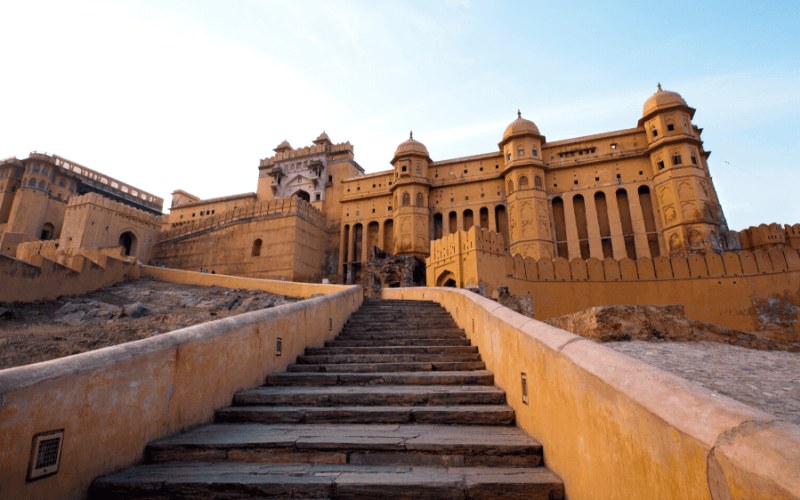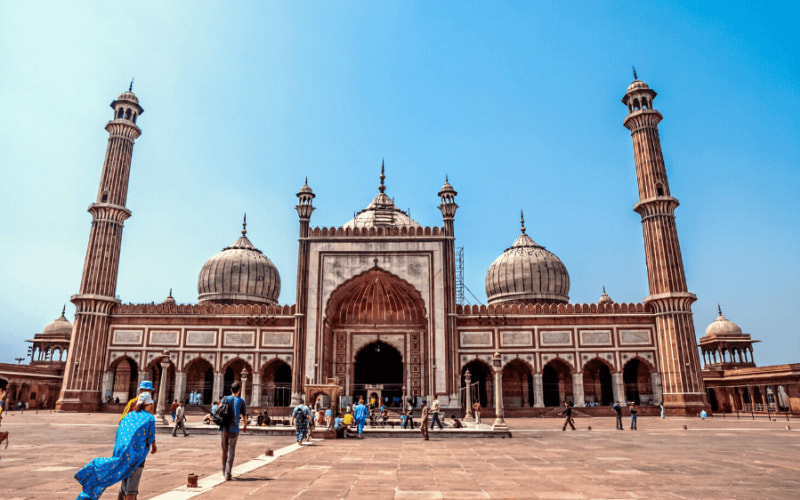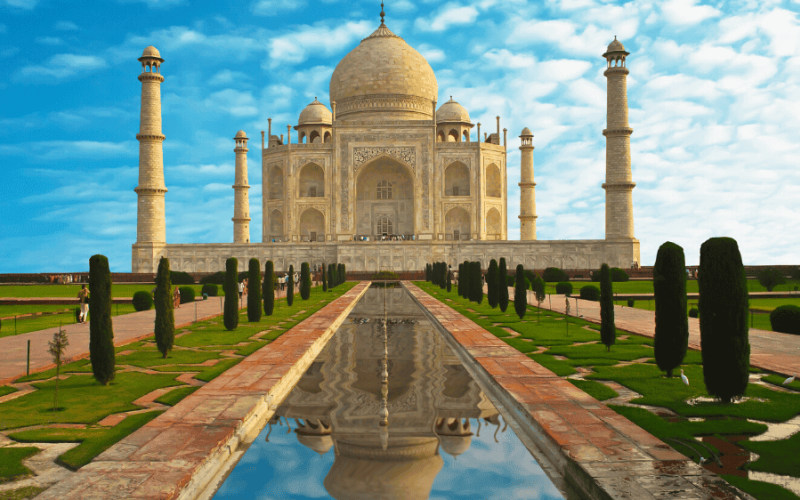The ‘Festival of Lights’, Diwali is a colourful and vibrant religious festival celebrated every year by Hindus, Sikhs, Jains and even some Buddhists around the world. One of the things that is most fascinating about India, and something that is extremely admirable, is the number of different religions that live together in peace. Religion in India is characterised by a diversity of religious beliefs and practices. The majority of the population of India practises Hinduism. However, there is a large portion practising Islam as well as other religions such as Christianity, Sikhism, Buddhism and Jainism. During a trip through India’s Golden Triangle, you’ll witness men in skull caps praying on prayer carpets in the Jama Masjid mosque, ladies in bright orange saris with their feet painted red entering a Hindu temple, and admire the architecture of the Jain places of worship. You may be lucky enough to be in Jaipur for Ganesh Chaturthi, a Hindu festival celebrated in honour of the elephant-headed god, Ganesh. The streets were filled with people in colourful dress awaiting the procession of parade style floats dedicated to Ganesh.
What is Diwali?
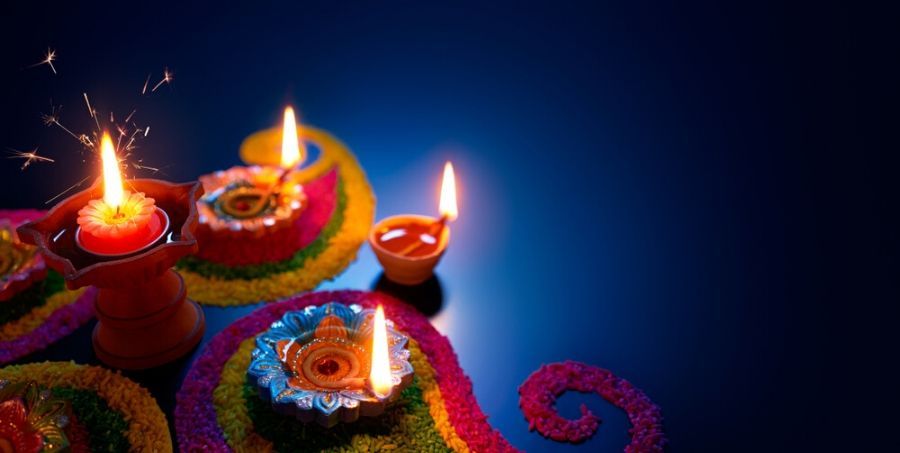
Diwali is a five day festival, which originated from ancient Indian times. The word Diwali is derived from the Sanskrit word ‘dipavali’, which means a row of lights. Depending on your religion and the region you live in India, there are various reasons for celebrating Diwali and it marks different historical events and stories. Essentially Diwali symbolises Good triumphing over Evil, the victory of Light over Darkness and Knowledge over Ignorance.
When is Diwali?
Diwali takes places every year, depending on the position of the Moon, either in October or November.
How is Diwali celebrated?
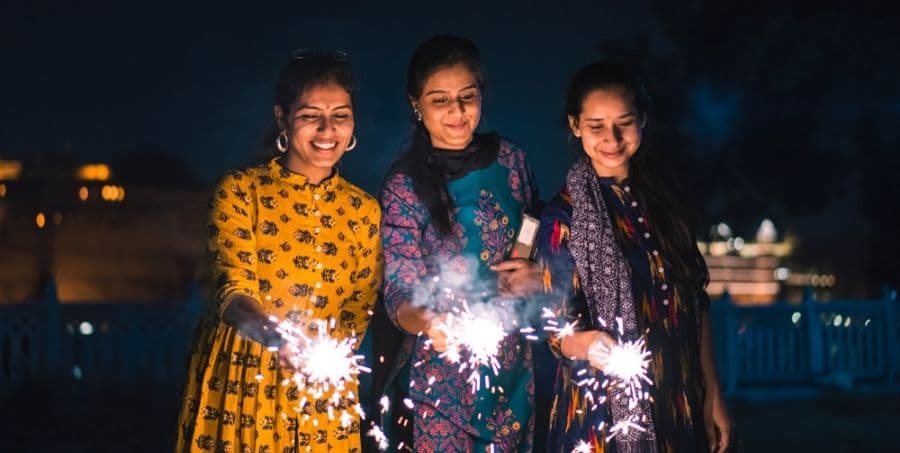
People illuminate their homes, temples and offices with diyas, candles and lanterns. In the build up to Diwali, people often clean or redecorate their houses and decorate their floors with rangoli, colourful artwork patterns created from flour, rice, sand or flower petals. Gifts are often exchanged, girls will receive new saris and boys will be given new ‘kurta pajama’, similar to a shirt, they will change into their new clothes, marking a fresh start to the new year. And of course, fireworks are a huge part of Diwali!
Hinduism
In Hinduism, depending on your region, Diwali is celebrated for Lord Krishna’s defeat of the demon Narakasur and the homecoming of Lord Rama to Ayodhya after fourteen years in exile. The holiday starts with a ritual ceremony or ‘puja’ to celebrate the victory of light against the darkness.
Sikhism
Sikhs celebrate Bandi Chhorh Divas, which coincides with Diwali to mark the release of Guru Hargobind Sahibji and 52 royal members of India who were held captive by Shah Jahan, a mogul emperor in 1619. To this day, Sikhs light up the Golden Temple in Amritsar to celebrate his homecoming.
Jainism
For Jains, Diwali marks the Nirvana or liberation of Lord Mahavira’s soul from the cycle of death and reincarnation. Diwali is also an occasion to celebrate Lord Mahavira's teachings and contributions to Jainism by lighting lamps to signify the light of his knowledge.
Traditional Diwali Cuisine in India
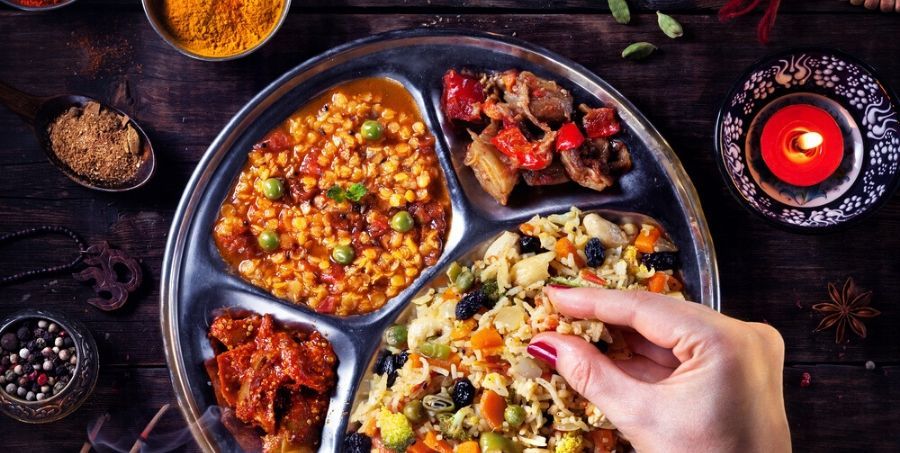
Another highlight of Diwali is the delicious food, where huge feasts are prepared and traditional Indian dishes are consumed, such as Samosas and Mithai; the name given to Indian sweets and desserts and it’s traditional to exchange a box with friends and family.
If you would like the opportunity to experience a Hindu festival in India, you may be able to celebrate Diwali on certain dates during October or November on our India tours. Even if you don't visit during this time, India is still a wonderful country to see. Check out our blog post on the Top Things To Do In India and you'll see why India has so much to offer.

